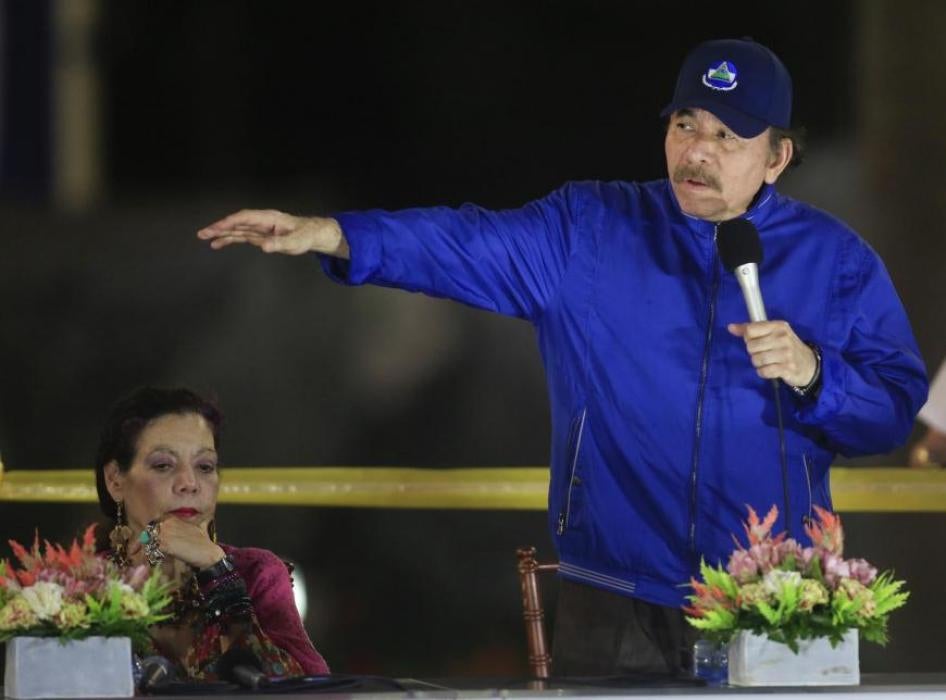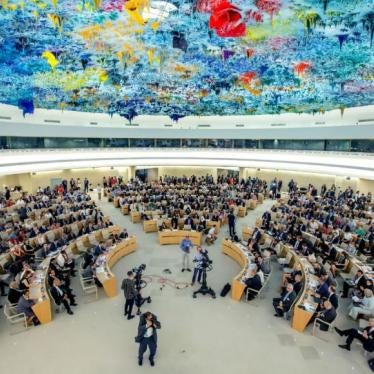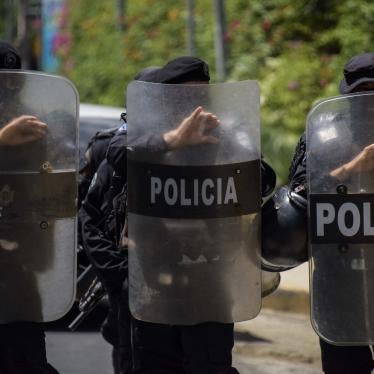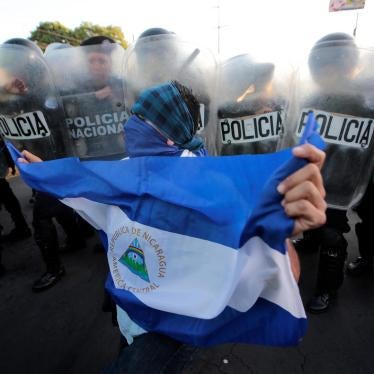The cruelty of the Daniel Ortega government appears to have no limits and requires a bold response from Latin American governments.
A report released in early March by the United Nations Group of Human Rights Experts on Nicaragua found reasonable grounds to conclude that the authorities have committed crimes against humanity, including murder, imprisonment, torture, sexual violence, forced deportation, and persecution on political grounds.
On February 9, Ortega’s dictatorship expelled 222 political prisoners to the US. It later stripped them and 95 other critics of their nationality, leaving many of them stateless. Some fear for the security of family members still in the country, who are under surveillance by government supporters. A former political prisoner recently told us that “even death was better than being there.” During his detention at El Chipote prison, officials tore his fingernails off, gave him electric shocks, and beat him during interrogations to find out who had allegedly funded the student movement he belonged to during anti-government protests, he said.
Thirty-seven people perceived as critics remain imprisoned in Nicaragua, including Bishop Rolando Álvarez, who refused to be expelled to the US. He has been held incommunicado since February 9. A March 10, Pope Francis compared the Nicaraguan government to "grotesque" dictatorships. On March 12, the government announced the suspension of diplomatic relationships with the Holy See.
Some countries in Latin America, including Chile, Colombia, Uruguay, and Ecuador, recently issued public statements unequivocally condemning Ortega’s abuses and 17 Organization of American States members criticized the recent decision to strip 317 Nicaraguans of their nationality. Mexico, Uruguay, Colombia, Argentina, Chile, Ecuador, Panama, and Brazil offered them their nationality.
These are positive steps, but the gravity of Nicaragua’s ongoing crisis requires stronger regional action.
Democratic governments in the Americas should establish a regional “Group of Friends,” made up of governments across the political spectrum, to contribute to a transition toward democracy. In high-level meetings, they should design a strategy to exert concerted pressure, privately and publicly, to curb abuses, provide pathways to accountability, and push for free and fair elections. As they carry out their strategy, each government could lead specific initiatives.
Chile and Costa Rica, newly elected UN Human Rights Council members, could lead efforts to pass a resolution on Nicaragua during the current council session. A draft resolution to extend the mandate on Nicaragua of the Group of Human Rights Experts for two-years was put forward by Brazil, Costa Rica, Canada, Chile, Colombia, Ecuador, Paraguay, and Peru. Other regional members, such as Mexico, Argentina, Honduras and Paraguay, should work to obtain the necessary votes for it to pass and focus on ensuring that both mechanisms receive adequate resources and funding.
Members of the Central American Bank for Economic Integration (Banco Centroamericano de Integración Económica, CABEI), such as Colombia, Costa Rica, Argentina, Dominican Republic, and Panama, should ensure that the Bank does not contribute to human rights violations in Nicaragua. CABEI, an international development bank, has 25 “active loans” for Nicaragua, with funds approved for a total of over US$3.5 billion. While most of these loans are supporting infrastructure projects, there appears to be little transparency and auditing, from the bank’s staff or the Nicaraguan government, about how these funds are being used.
CABEI’s Assembly of Governors, the bank’s highest authority, could require an independent external audit of all funding provided to Nicaragua. This measure would ensure that funds are not fueling abuses and are only used to fulfill the economic and social rights of Nicaraguans. It would also be an opportunity for Costa Rica, the Dominican Republic and Panama to show a commitment with the stated objectives of their Alliance for Development in Democracy.
Based on existing information regarding the commission of serious crimes under international law, including torture, governments should also explore pursuing criminal investigations against those responsible under the principle of universal jurisdiction. This principle allows authorities to prosecute certain grave crimes, regardless of where they occur and the nationality of victims and suspects. This is a key avenue for accountability given that Nicaragua is one of the few countries in the region that have yet to join the International Criminal Court.
Recently at the UN, Brazil expressed concern about human rights violations by the Nicaraguan government. The Lula government, which seeks to regain its position as a global player, should work with other countries to demand the release of political prisoners and the restoration of democratic guarantees.
The crisis in Nicaragua has generated an unusual consensus among leaders with diverse political backgrounds in the region. Now, a collective and concerted approach is critical to restore democracy in the country. If the countries in the region fail to work together in support of the people of Nicaragua, it will send the dangerous message to other Latin American authoritarian governments that blatant and brutal abuses can go unchecked.









